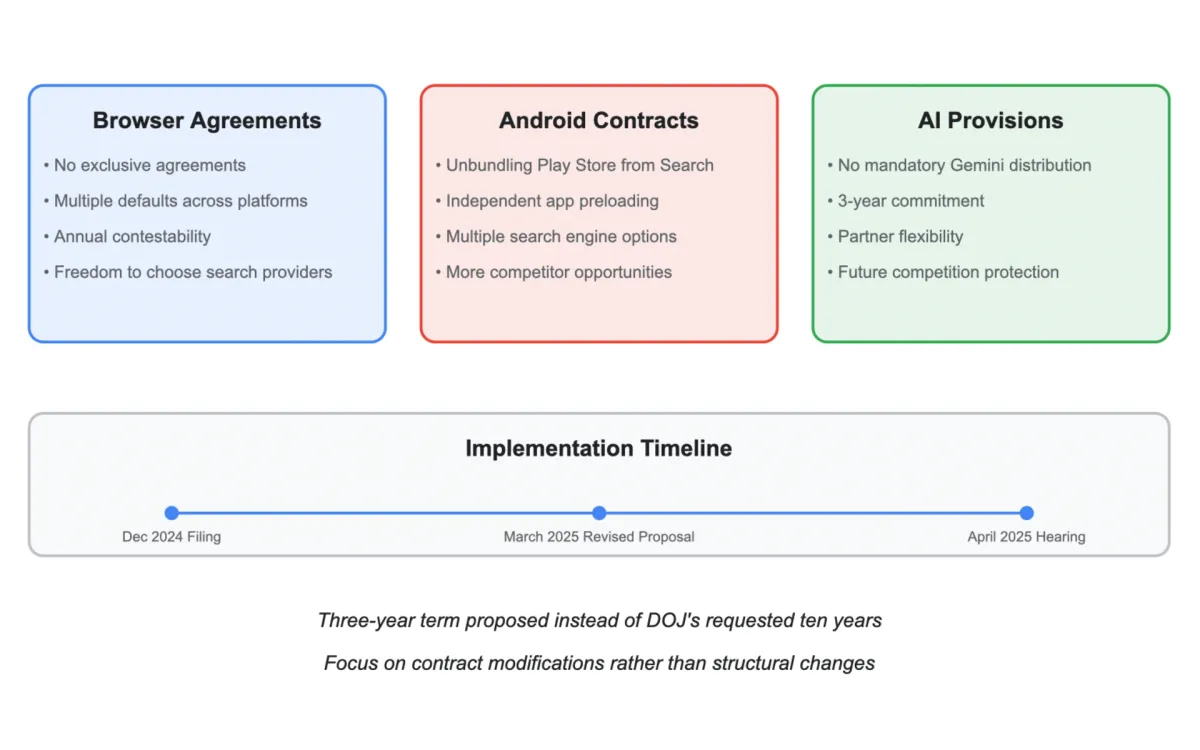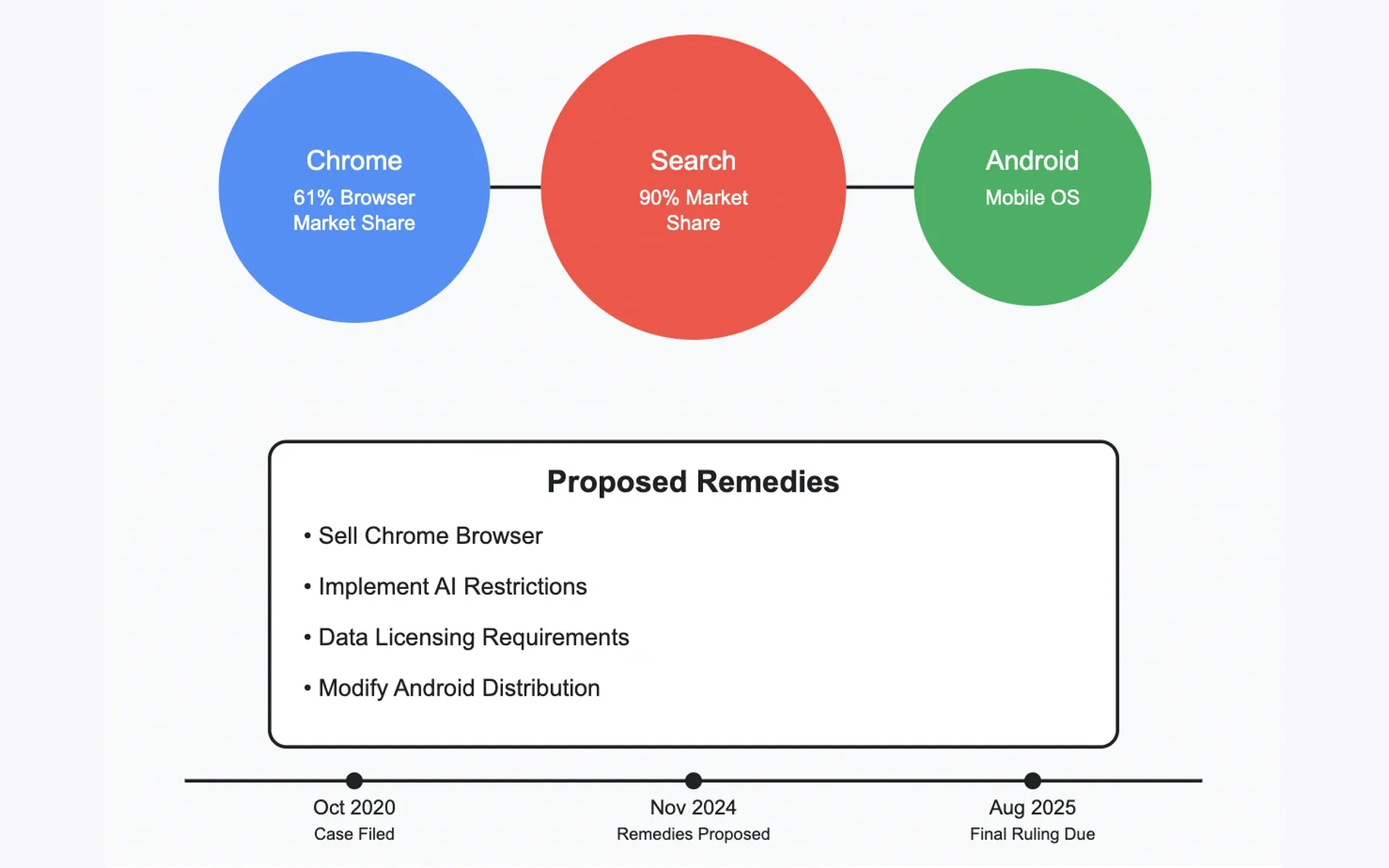
Google has submitted its proposed remedies to the United States District Court in response to the Department of Justice's antitrust case, outlining a narrowly focused approach that specifically targets search distribution contracts while pushing back against broader regulatory intervention.
According to Google's December 20, 2024 filing, the company's proposal centers on three key areas while maintaining a more limited scope than the DOJ's suggested remedies. The filing comes as part of the legal process requiring both parties to outline potential remedies before a hearing scheduled for April 2025.
Lee-Anne Mulholland, Vice President of Regulatory Affairs at Google, emphasizes that while the company disagrees with and plans to appeal the Court's decision, the legal process necessitates filing proposed remedies. According to Mulholland, the case fundamentally concerns contracts, and antitrust law dictates that remedies should specifically address these agreements rather than broader business practices.
The first major component of Google's proposal addresses browser agreements. Under the suggested changes, browser companies like Apple and Mozilla would retain the freedom to partner with their preferred search engines while gaining additional flexibility. The proposal would enable multiple default agreements across different platforms, allowing browsers to set different default search engines for various devices and browsing modes. Notably, these agreements would become contestable at least every 12 months, a timeframe the court previously designated as "presumed reasonable" under antitrust law.
For Android contracts, Google proposes significant modifications to its existing bundling practices. The changes would grant device manufacturers greater flexibility in preloading multiple search engines and managing Google applications independently. According to the filing, manufacturers would no longer need to bundle Google Search or Chrome with the Google Play Store or other Google applications. This modification aims to create more opportunities for competitors like Microsoft to bid for placement.
The company's proposal also includes provisions for emerging technologies, particularly in the artificial intelligence sector. Google commits to not requiring device makers or partners to distribute its Gemini AI assistant to U.S. users for three years, acknowledging the evolving nature of search technology.
In contrast to the DOJ's proposal, which Google characterizes as reflecting an "interventionist agenda," the company's approach explicitly avoids broader regulatory measures. Google argues that the DOJ's suggested remedies extend far beyond the scope of the Court's decision about search distribution agreements. The company particularly objects to requirements that would compel sharing private search queries with competitors or restrict product innovation.
 PPC LandLuís Rijo
PPC LandLuís Rijo
The filing emphasizes several key legal principles supporting its more targeted approach. According to court documents, remedies must maintain a "significant causal connection" with the identified anticompetitive conduct. The company cites precedent from Microsoft cases, noting that remedies should be "of the same type or class as the violations."
Google argues against what it terms "extreme remedies," citing legal precedent that warns against courts becoming "central planners" in business operations. The filing references the Supreme Court's particular sensitivity to continuing supervision of highly detailed decrees, suggesting that extensive regulatory oversight could potentially harm rather than enhance competition.
The company acknowledges that these changes would impact its partners by regulating how they select search engines for their customers. However, Google maintains that its proposal fully addresses the Court's findings while protecting user privacy and security, and preserving American technological leadership.
Looking ahead, Google's remedies proposal represents just one step in an ongoing legal process. The company plans to file a revised proposed final judgment on March 7, 2025, followed by the remedies hearing in April. Throughout this process, Google maintains its right to appeal both the final judgment and the Court's underlying liability determination.
The outcome of this case could significantly influence how antitrust law is applied to technology companies, particularly regarding distribution agreements and default settings. The contrast between Google's targeted approach and the DOJ's broader proposals highlights fundamental questions about the appropriate scope of antitrust remedies in the digital age.

